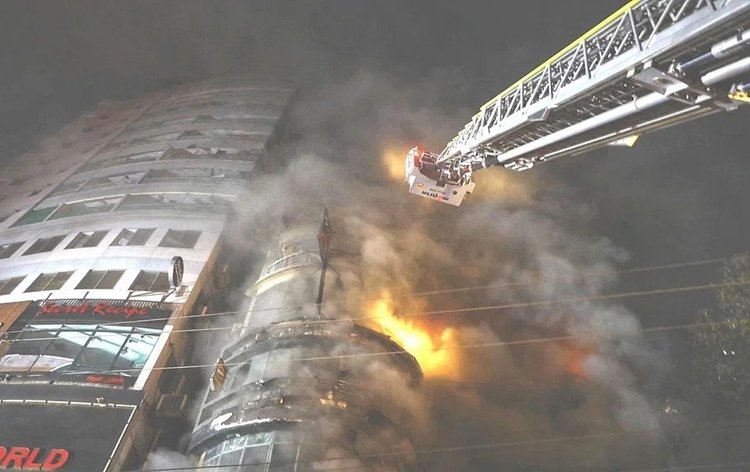Attacking is part of Iranian strategy
Citing an example of Tehran's tactics behind this attack, an Israeli expert said, in the past, Iran has hijacked or attacked cargo ships to increase tensions or seek concessions with various Western powers. Iran is very calculating in this process. It has also operated proxy groups in the region to carry out attacks. In Iraq, it has used a variety of pressure groups to attack the Kurdistan Region and target US forces over the past five years. Iran has also directly attacked Iraq's Kurdistan region and attacked Pakistan and Syria in January, claiming to target militants.
Iran is expanding its attack capability
Given the current situation in the Middle East, Iran is expanding the reach of its attacks and its willingness to attack Iran directly. Iran is now coming forward openly for carrying out these attacks and taking credit for them. Similarly, in 2019, when Iran attacked Saudi Arabia's Abqaiq facility through drones and missiles, initially Iran-backed Houthi rebels in Yemen took responsibility for it. Houthi rebels took responsibility for the attack so that Saudi Arabia does not launch any retaliatory attack against Iran. However, in the end it became clear that the attack was carried out by Iran.
Iran calms itself by attacking in retaliation
Today, Iran has moved beyond the Abqaiq attack or the attack on US forces at the Assad base in 2020. Iran attacked the Assad base in retaliation for the assassination of IRGC Quds Force chief Qassem Soleimani. Now Iran has again demonstrated its strength by launching hundreds of missiles and drones on Israel. However, the Iranian attack was in no way intended to cause massive harm to Israeli civilians, as it knew that if civilian casualties occurred there would be no stopping the war between the two countries. If there is a war, Iran will have to suffer huge losses, because Israel is far ahead in terms of weapons and global support.
A new example set in the Middle East?
This sets a new standard, and it seems that Iran will now be ready to carry out large-scale attacks in the future. This also means that if Iran attacks Israel in the future with some drones and missiles, it will be seen as a small attack. Iran will also try to exempt itself from retaliatory action by calling such attacks small. Some experts in Iran have called the attack of 13–14 April “symbolic”, whereas in reality the attack was not symbolic, but widespread and unprecedented.
Iran is making strategy with Hezbollah
Israel faces choices about how to respond. What is more important to see is how Iran seeks to reshape the “equation” in the region. For example, Iran has also tried to encourage Hezbollah in Lebanon to re-align with Israel. Hezbollah has launched 3,100 attacks on Israel and has even expanded those attacks in several cases, leading to the evacuation of some 80,000 people from northern Israel.



